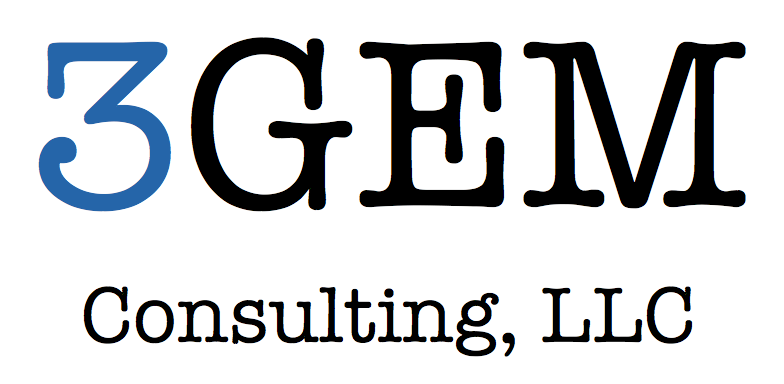Need help embracing 21st century learning?
Want to ensure your stakeholders - internal or external - are trained or educated in a way that will ensure retention and engagement, while at the same keeping costs down? Have an association, K-12, Higher Ed, corporate, non-profit or government learning initiative that needs strategic guidance?
3GEM is the consultancy for you. With more than 25 years in the learning space, we have deep expertise in building operational plans and strategic guidance for organizations who have mature learning programs, as well as those just getting started.
Our Process
At 3GEM, we recognize that every strategic engagement is different because your organization is different. Perhaps you’re looking to up the ante in your educational offerings and technology? Not sure you have the right staff or technology in place to achieve your goals? Looking to reinvision how you engage from a learning perspective with your stakeholders? 3GEM has done all of the above and more!
Despite each engagement being different, typical strategic learning engagements involve the following three phases. However, we are flexible and can work with you to design a project that meets your organization’s particular budget and goals.
Phase 1 – Research and Discovery / Environmental Scan
Validate your goals
Look in depth at the current state of the your people, processes and technology through the following:
Document reviews
Interviews with internal and external stakeholders, including staff, consultants, vendors, members, and clients
Tech stack analysis
Content assessment
Review past metrics as they relate to the engagement - e.g. revenue, costs, turnover, content completion, evaluation and assessment data, etc.
Explore pain points
Develop a gap analysis
GOAL SETTING AND PLANNING
Next, we try to understand where you’re looking to go, what needs you’re looking to fulfill, and what people, processes and tools you will need to achieve these goals. We do this by:
Interviewing/surveying internal and external stakeholders
Evaluating your content lifecycle process and capabilities/limitations (e.g. frequency of updates, purchasing cycle)
Evaluating your internal IT capabilities and platform management
Reviewing revenue goals and typical pricing models for your organization
Understanding federal and state certification and re-certification requirements
Exploring landscape of existing and needed learning technology as applicable to your organization (identify short and long-term wins and subsequent technology needs)
Identifying change management requirements as it relates to growing your organization’s esteem and presence in learning space - market opinion, "competing" associations and companies, certification, integrations, etc.
Identifying potential partners and vendors who can augment or support you
Phase 3 - Operational Plan Development
In this phase, we develop and iterate a plan that meets your needs. Specifically, we:
Develop a written plan , with a focus on:
Required resources and manpower
Technology planning and framework
Content assessment and planning
Sales and marketing
Change management
Evaluation
Budget
Build auxiliary collateral to help guide understanding of and implementation of the plan (e.g. project plans, budgets, RACIs, org charts, tech stack diagrams, process flows)
Gather input from internal and external and stakeholders and iterate, as needed.
Help you in presenting the plan internally/externally to help build buy-in.
3GEM believes that the world is moving too fast for you to flawlessly predict the future. As such, our operational plans are typically designed to be agile and milestone based, with a huge emphasis on evaluation and continuous improvement.
“A goal should scare you a little and excite you A LOT.”
Guiding Principles
Given the complexity of making organizational change, 3GEM often uses using Etienne Wenger’s Cultivating Communities of Practice (CoP) model* at the core of its strategic design. According to Wenger, CoPs are most successfully cultivated when adhering to the following principles:
Design for evolution.
Open a dialogue between inside and outside perspectives.
Invite different levels of participation.
Develop both public and private community spaces.
Focus on value.
Combine familiarity and excitement.
Create a rhythm for the community.
*Wenger, E., McDermott, R., & Snyder, W. (2002). Cultivating Communities of Practice: A Guide to Managing Knowledge
Need an outside lens with significant experience and knowledge of the learning landscape to help guide your future strategy?



